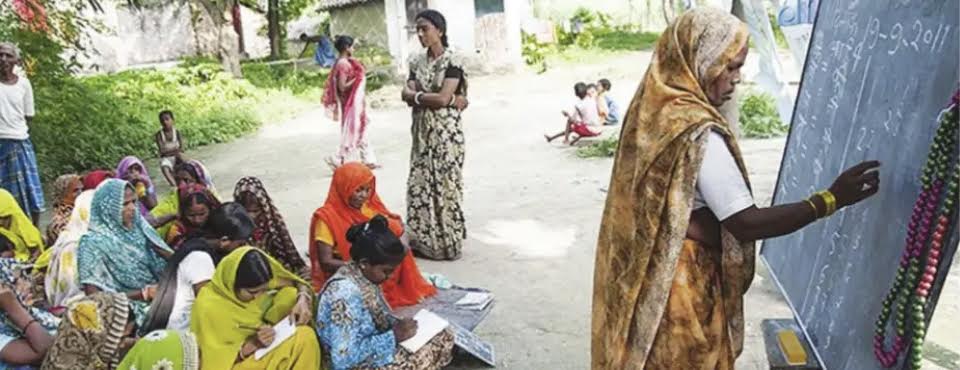India has many development schemes which involve the close collaboration of national, state and local authorities. Hence it is not surprising that problems appear from time to time. There are also problems relating to corruption which can considerably reduce the benefits these development schemes are supposed to bring to people.
It is a measure of the success of our democracy and governance that we should be able to resolve these problems with the cooperation of various authorities as well as participative cooperation of people’s organizations, particularly those with a record of anti-corruption and transparency initiatives.
Advertisement
While resolving these issues, the advice of Mahatma Gandhi should be the most important source of guidance – whenever you are in doubt, remember the concerns of the poor and keep them foremost in your mind while making a decision.
This advice will be particularly valuable for resolving conflicts regarding those development schemes which have been primarily launched for protecting and promoting the interests of the poor. The scheme prepared under the National Rural Employment Guarantee Act and associated with the name of Mahatma Gandhi called MG-NREGA has been particularly important in this context. Some serious problems have emerged in the implementation of this scheme in recent times and a democratic struggle aimed at satisfactory resolution of these problems has emerged.
On the 40th day of the patient, entirely peaceful yet firm struggle of NREGA workers in Delhi, a glimmer of hope at last appeared on the horizon for achieving some justified demands. When a delegation of the protest organisers (several grassroots organizations from various parts of the country) including the NREGA Sangharsh Morcha met senior officials of the Rural Development Ministry of the Government of India, they were assured that the Ministry is willing to consider some of their demands and they were also invited for another round of talks.
Secondly, when representatives of the struggle met Member of Parliament and member of the Parliamentary Standing Committee on Rural Development, Kanimozhi Karunanidhi, she expressed solidarity with them and invited representatives to attend the next meeting of the Parliamentary Committee.
To be more specific, these workers have raised an important issue that due to some arbitrary and unnecessary provisions being introduced in NREGA, the payments and attendance systems at work sites have been badly disrupted. Wages of workers worth several crore rupees have been denied to them because of the insistence of the authorities on online attendance (National Mobile Monitoring System or NNMS) and Aadhaar Based Wage Payment System (ABPS). The revised deadline for mandatory use of the ABPS system was fixed at March 31 and it was reported that it will not be extended beyond this. However, senior officials told the delegation of workers which met them on April 3 that they are willing to extend this by a few months. In addition, officials told the delegation that they will be willing to discuss their suggestions for improved social audits and other genuine, community-based, transparent anti- corruption measures.
While this is an important step forward and a window of important dialogue with the government has been opened on the 40th day of the protest, the wider issue is for the government to take back the NNMS and also take back its insistence on ABPS becoming mandatory as the only payment system at some stage (instead of the earlier system which allowed straight bank account payment as well).
Apart from the several problems that the NNMS has already caused, another issue is that it reduces chances of flexibility of working hours which are important for avoiding health hazards posed by heat waves. With the risk of heat waves and extremely hot weather increasing in times of climate change, it is important for workers to be allowed to do their work at a time of their choosing. In some places it has been possible for workers to come very early in the morning and either complete work before it becomes really hot, or return to work in the evening when things have cooled down somewhat. Such flexibility should be seen as a climate change adaptation measure and we will need more of this for NREGA and in respect of other open space workers exposed to extreme heat. Systems like NNMS obstruct such flexibility (apart from their other main problems of obstruction of employment and wage).
Then there is also the pending issue of West Bengal workers’ dues remaining unpaid for months and NREGA work being denied. Here the wider issue is that whenever corruption issues come up between state and central authorities, these should be resolved by curbing corruption but in the process there should be no victimization of the poor in the form of denial of either pending wages or ongoing work. This issue has a wider relevance for other development programmes too.
Coming back to the advice of Mahatma Gandhi, those schemes which are of crucial importance to the poor should be resolved giving the most importance to the concerns of the poor, and what is most important the poor should never be victimized for the mistakes of others.
(The writer is Honorary Convener, Campaign to Save Earth Now. His recent books include Man over Machine and India’s Quest for Sustainable Farming and Healthy Food.)











